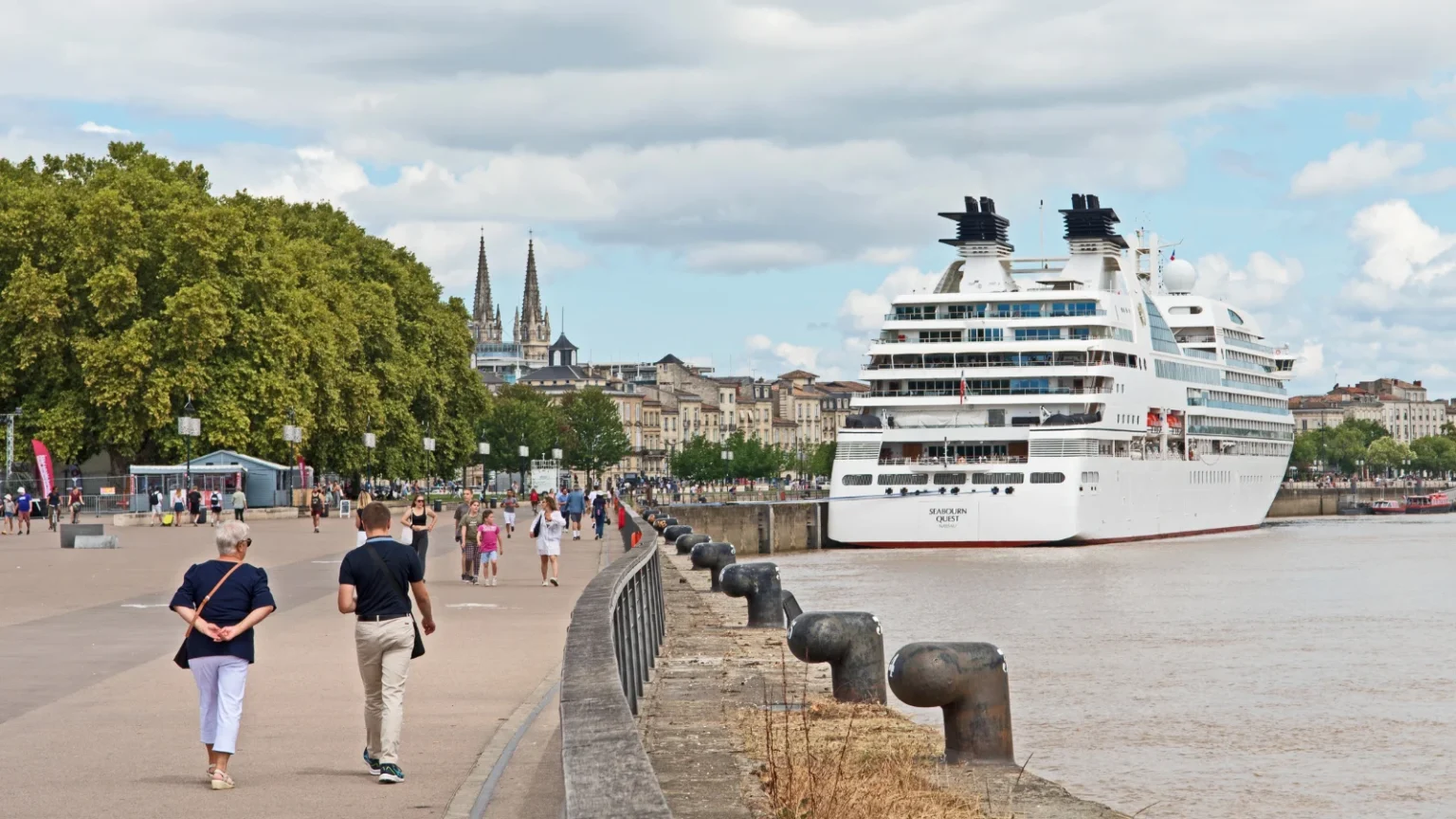Bordeaux’s mayor has intensified efforts to prohibit cruise ships from the city centre, citing aesthetic and ecological concerns.
The call for change highlights growing tensions between urban appeal and tourism economics.
Bordeaux’s Push for a Cruise Ban
The mayor of Bordeaux, Pierre Hurmic, has vocally supported a complete ban on cruise ships docking in the city centre. He argues these ships not only detract from Bordeaux’s aesthetic appeal but also contribute to environmental degradation in the region. Currently, there’s a cap limiting cruise ship docking at Port de la Lune to 40 a year.
Environmental and Aesthetic Concerns
Hurmic has noted increasing dissatisfaction among Bordeaux residents concerning the presence of cruise ships. They reportedly bring about unwelcome changes to the landscape. Such sentiments have encouraged measures like the proposed total ban. The vessels contribute significantly to pollution, impacting the region’s environment.
An alternative plan considered involves relocating docking facilities further along the Garonne River. This potential solution, however, is not without its challenges and has been met with mixed reactions from local stakeholders.
Economic Implications and Business Response
The president of the Bordeaux-Gironde Chamber of Commerce and Industry, Patrick Sequin, expressed concerns over the economic repercussions of relocating docking sites.
According to Sequin, such a move could have ‘heavy consequences’ for Bordeaux’s trade sector. The businesses dependent on cruise tourism could suffer, posing a dilemma for city planners balancing ecological health with economic stability.
Despite these challenges, ongoing discussions aim to address these concerns while considering sustainable practices.
Cruise Industry Adaptations
Several major cruise lines currently dock at Bordeaux, including Oceania Cruises and Silversea.
These companies may need to adjust their itineraries should new docking regulations come into force. Such changes have been noted in other European cities facing similar tourism pressures, like Amsterdam, which has also proposed measures to manage cruise traffic.
Operators must stay attuned to these policy shifts to maintain their commitments to sustainability.
Comparative Cases in Europe
The debate in Bordeaux mirrors situations in other European regions. Earlier this year, Amsterdam City Council announced plans to relocate its cruise terminal by 2035. This decision, like those in Bordeaux, is driven by a need to mitigate nuisances stemming from giant cruise ships and rising tourism numbers.
These European cities are aligning on the idea that preserving the urban environment should take centre stage in policymaking.
Bordeaux’s decision could influence others contemplating similar restrictions.
Future of Urban Docking Solutions
With potential changes in docking policies in city centres, innovative solutions are being explored. River shuttles that connect distant docks to urban centres are being considered as a viable alternative.
Such proposals are pivotal for cities like Bordeaux, as they aim to find a balance between tourism and maintaining the integrity of urban landscapes.
Ultimately, the success of these strategies hinges on stakeholder collaboration.
Implications for the Cruise Industry
As cities reassess their policies on cruise docking, the cruise industry must adapt promptly. Companies will need to consider less intrusive docking options and focus on sustainable tourism practices.
This shifting landscape requires proactive planning to align business objectives with environmental goals, signalling a new era for the industry.
The ongoing debate underscores the need to balance environmental and economic interests.
Solutions may set a framework for sustainable urban tourism across Europe.

